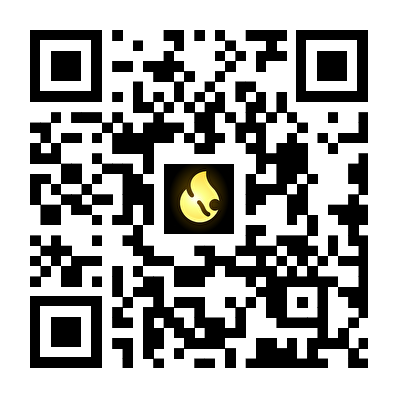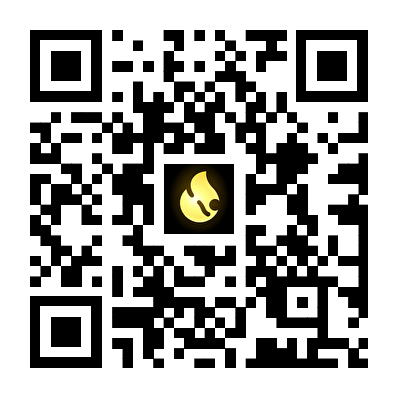Keeping tabs on your food desires seems straightforward, yet in reality, it's a constant battle. Logging into diet apps by hand consumes a significant amount of time, and estimating calories from images or recollection often leads to inaccurate results. For those aiming to lose weight or eat better, a lack of accuracy can be discouraging and disheartening.
That is the reason AI food recognition apps have become essential and a game-changer. With advanced recognition technology, these applications can recognize your meals and even tell nutritional details with a photo. This means no more tedious logging, snap and scan to stay on top of your health goal with less effort. Anyhow, get your hands on the top 5 AI-powered food recognition apps by reading this article.
In this article
Part 1. Why AI Food Recognition Is a Must for Every User?
Switching to a food recognition app transforms the way you understand and manage your meals. Before selecting one, it's crucial to understand which characteristics truly render an AI food recognition app suitable for your way of life:
- Fitness Freaks: For those hitting the gym daily, AI food recognition apps ensure every protein shake or post-workout meal is tracked accurately. This makes hitting your macros and optimizing gain or fat loss effortless.
- Busy Students: Scholars juggling classes and assignments often skip proper meal logging. With AI recognition, they can snap a quick photo of their lunch, get calories, and stay on top of their diet without losing study time.
- Health-Conscious Professionals: Office workers and professionals are often too busy to cook and eat fast food. AI-based food recognition apps automatically record meals in restaurants, which allows one to keep a balanced diet despite a busy schedule.
- People Managing Medical Conditions: Patients with such conditions as diabetes or high cholesterol should monitor their carbohydrate or sugar levels. These applications make it easy by giving accurate nutritional breakdowns to help manage health.
- Casual Users and Foodies: Even for those on a strict diet, AI food recognition makes it fun to learn what's on your plate. It creates meal size and nutrition awareness, which will enable anyone to make smarter decisions without having to do anything additional.
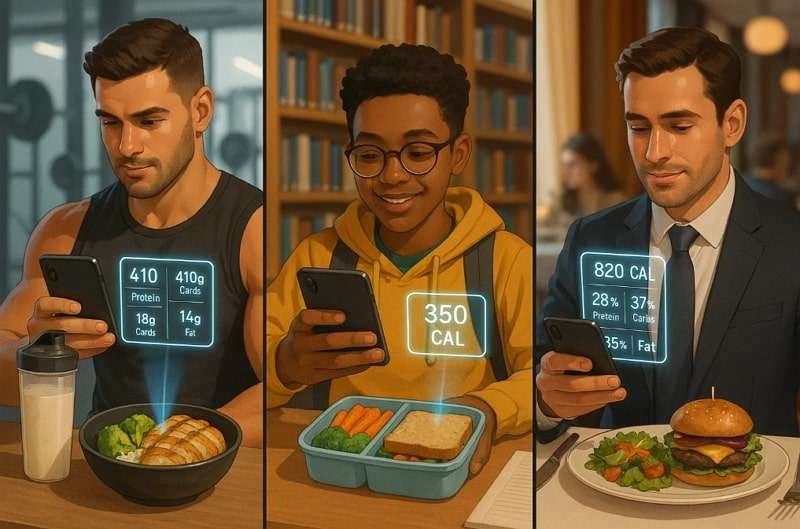
Part 2. What You Must Consider When Choosing the Best AI Food Recognition App?
There are various food image recognition apps, with most of them not being as accurate or convenient as others. To select the most appropriate one for your needs, pay attention to the following main characteristics, according to which an AI food app can be effective:
- Accuracy and Database: A reliable platform must identify a wide variety of foods, from homemade recipes to international dishes. Applications that have extensive and updated databases offer more accuracy and ensure your meal tracking is accurate.
- Nutritional and Macro: Beyond recognizing food, the app should give detailed dietary information, including calories, protein, and carbs. This helps users follow a diet plan, hit their macro goal, and make healthier eating choices with ease.
- Ease and Speed: The optimal application should make meal logging easy and fast with an easy-to-use interface and rapid recognition technology. When an app is sluggish or hard to navigate, you will be less consistent in your tracking.
- Integration with Apps: It syncs with other apps such as Apple Health and Google Fit so that your nutrition information is in line with your activity and fitness achievements. This entire health profile simplifies the process of tracking outcomes and rearranging your objectives.
- Offline and Multi-Meal: Some AI food recognition apps work even without an internet connection, which is ideal for travelers or outdoor users. Multi-meal recognition lets you log entire plates with more than one item at once, saving time and effort every day.
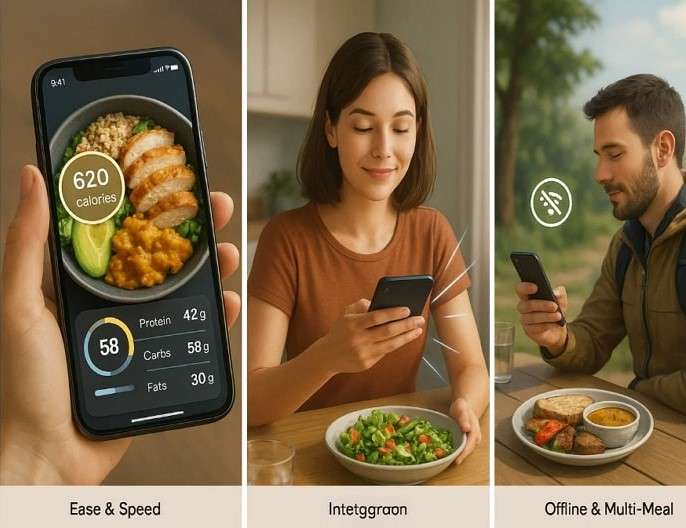
Part 3. Top 5 AI Food Image Recognition Apps You Should Try
AI food recognition apps are evolving, offering smarter ways to track meals and understand nutrition. If you're looking for the most reliable and user-friendly options, here are 5 top apps worth trying:
1. CalBye - AI Calorie Counter
CalBye is the best application for tracking your meals and allows users to log meals using text or a photo, making it suitable for any situation. The barcode scanning is integrated to help you input packaged foods and reduce search errors. Apart from this, the food recognition app provides easy logging for recurring foods and boosts consistency without repeated effort.
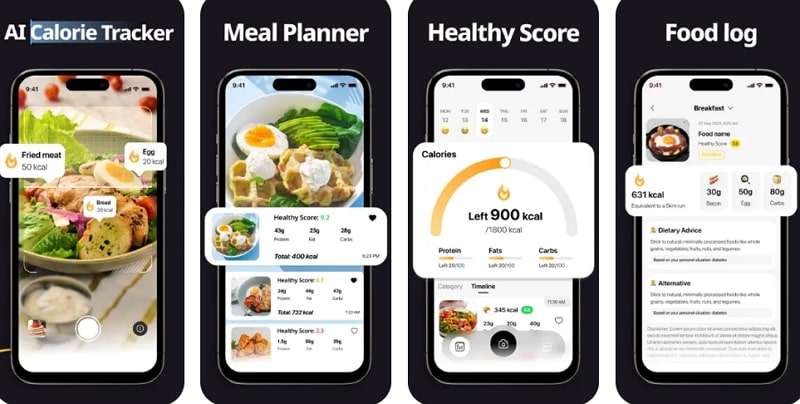
Its database covers international foods, supporting global users in tracking diverse cuisines and maintaining their dietary targets. CalBye takes your age and weight data and then makes innovative suggestions to ensure your needs align with recommendations. Using advanced AI and machine learning, it even removes manual input fatigue and guesswork.
Key Features
- Food Quality Scores: Meals receive nutrition value scores, helping users make healthier food choices rather than guessing quality.
- Instant Analysis: The results are shown in a matter of seconds after taking a picture of a food item.
- Encrypted Data: All users' data is safe, giving peace of mind and additional protection from unauthorized access.
Why It is the Best
- This app stands out due to its advanced image recognition technology, which helps count calories of food.
- The personalized meal suggestions are tailored to your health goals, making dietary planning easier.
- It is highly intuitive and allows everyone to log in with just a snap, reducing manual logging fatigue.

2. Food AI - PlateScan (Android | iPhone)
This app lets you snap a photo of your meal and detect food items using advanced AI food image recognition for fast tracking. You can estimate the cost of the calories and more from your plate, making nutrition breakdowns quick and hassle-free. Users can log meals, monitor their daily intake, and review weekly nutritional reports, giving them clear insight and patterns.
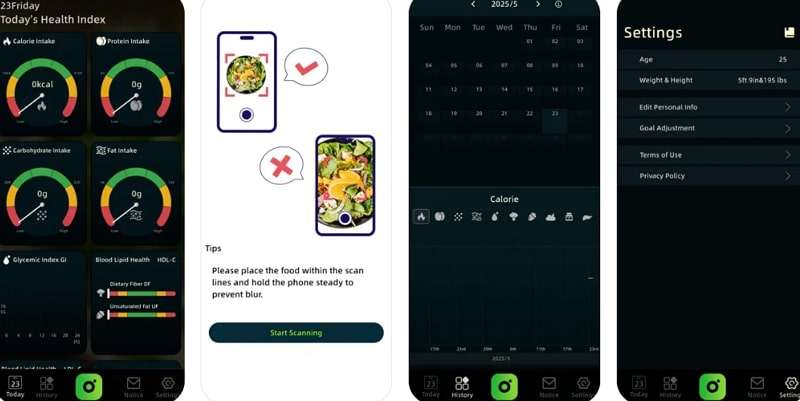
Key Features
- Personalized insights are tailored to your health goals, such as weight loss and muscle gain.
- A global food database supports thousands of international dishes, making it easier for users with diverse diets.
- Instant analysis provides results within seconds, giving calorie awareness for a busy lifestyle.
Limitations
- The app sometimes gives inaccurate calorie counts with homemade or mixed dishes.
- Users report that meal size estimation is not always precise, making the calculation less trustworthy.
3. MacroSnap AI (Android | iPhone)
Regarding AI food recognition, this app enables users to analyze meals instantly by taking a picture. It is based on high-tech AI, which gives accurate data about calories and micronutrients and removes the burden of manual tracking. Not only that, but it's a real-time nutrition dashboard that visually summarizes daily intake to help you check macros and overall diet progress at a glance.
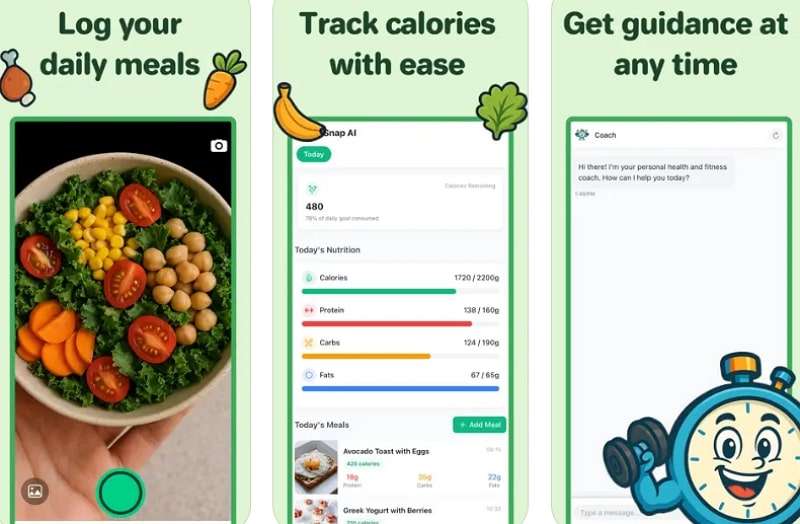
Key Features
- All personal data is encrypted and is never distributed to third parties.
- The app's built-in AI nutrition coach offers tailored suggestions and gentle feedback to enhance health goals.
- You can delete data on request, ensuring users always stay in control of their information.
Limitations
- Users report that some features require a paid subscription after a limited trial.
- There's also a learning curve for new users, as it takes time to navigate before becoming fully efficient.

4. SnapCalorie (Android | iPhone)
SnapCalorie instantly analyzes calories and 30+ micronutrients from a photo using AI, built by ex‑Google researchers, ensuring double accuracy. The food recognition app integrates with the USDA database to recognize both home‑cooked and restaurant meals, which guarantees accurate nutritional tracking. Other than that, the LiDAR sensors on iPhones measure meal sizes, helping users manage calories and eat healthier with ease.
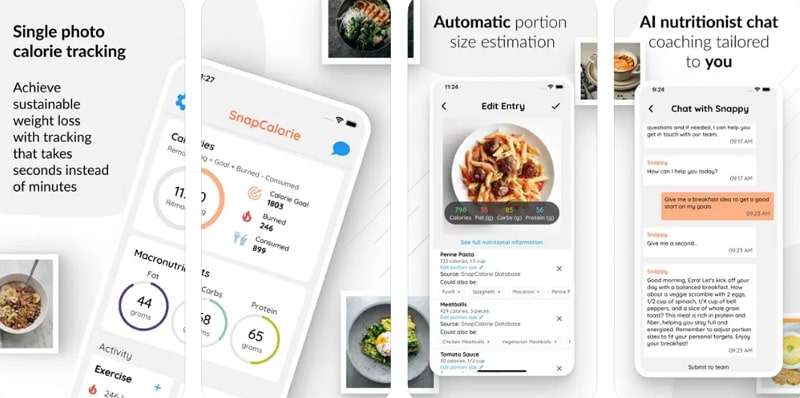
Key Features
- You can log foods with quick voice notes or nutrition label photos, eliminating the need to type.
- This food image recognition app is entirely free to use and adapts to your dietary habits over time.
- Nutrition data syncs with Apple HealthKit for holistic progress tracking, besides activity and health markers.
Limitations
- The initial setup is lengthy and requires the submission of personal details before you see results.
- Its recognition algorithm is biased toward American foods due to initial US-centric training data.
5. Calorie Mama AI (Android | iPhone)
It's another app that utilizes advanced food image recognition to identify thousands of foods, including fruits and global cuisines, providing instant calorie and macro breakdowns. The app's database includes complex restaurant meals and packaged foods from the US and Canada for seamless tracking. Not only that, but it also simplifies healthy eating by letting users confirm suggestions and log meals with a single tap.
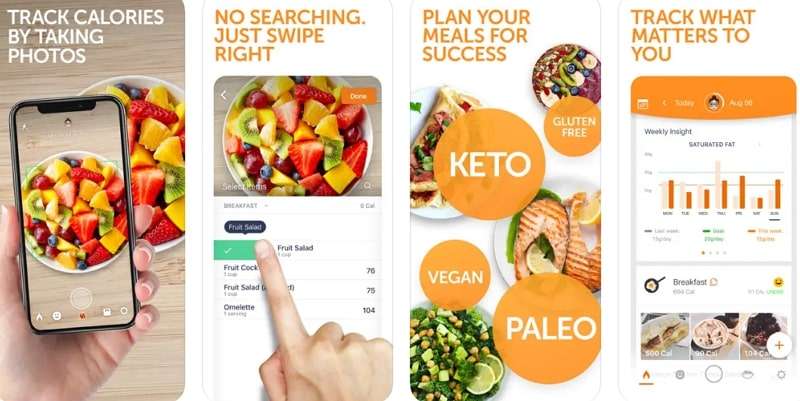
Key Features
- Personalized meal plans and recipes are offered for various dietary goals, like Keto and Paleo.
- It syncs with Apple Health and Google Fit, supports both photo-based and manual food logging.
- You can use voice descriptions to add your meals without typing, making logging faster.
Limitations
- The app's photo-based food recognition often misidentifies dishes, especially homemade meals.
- Many reviewers note that the app consumes large amounts of storage, sometimes several gigabytes.
Conclusion
In conclusion, AI food recognition apps have revolutionized how we track meals. This makes calorie counting and nutrition management faster and far less tiring. Whether you're a busy professional or someone simply aiming to eat healthier, these apps remove the guesswork from meals. Among the many options available, CalBye stands out for its accuracy, making it an excellent choice for anyone ready to simplify healthy eating.

FAQs
-
How accurate are AI food recognition apps for calorie and nutrient estimation?
Most food recognition apps are highly accurate for everyday meals, especially when paired with large databases. However, accuracy may drop for mixed or rare dishes, so occasional manual adjustments are helpful. -
Do these apps store or share my data with third parties?
Some applications keep your data private, but it's essential to check their privacy policy. Nevertheless, some may share anonymous insights for research or app improvement. -
Can I rely on these apps for medical or clinical diet needs?
AI food recognition apps are great for general health tracking, but you can use them as medical‑grade tools. Regardless, please consult a professional before using apps for clinical diets or medical conditions. -
Do I need an internet connection to use all the features?
Basic meal logging may work offline, but features like accessing the food database and cloud syncing require an internet connection. However, offline recognition is available in some premium apps for convenience.


